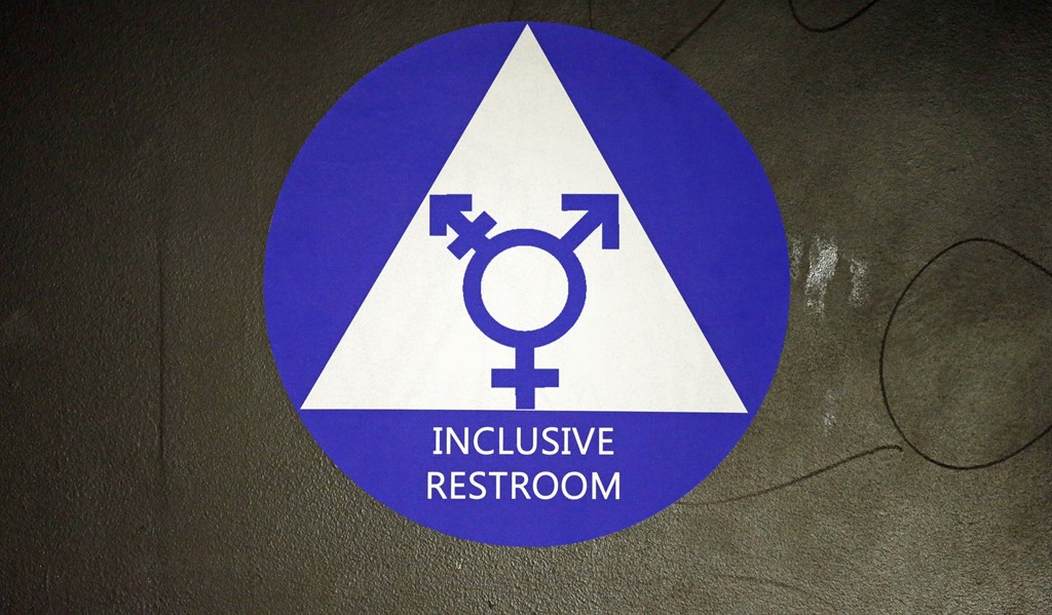This past Wednesday, Utah's new bathroom law went into effect. It requires people who use bathrooms and changing rooms in government buildings to use the room that corresponds with their birth sex. Non-enforcement can result in a fine of up to $10,000 per violation. The law also includes a tip line for reporting said violations. That tip line, which is an online portal, is awash in alleged violations, and the people whose job it is to sort through those reports are getting snowed under with work.
Using the same article from the Associated Press, KUTV and Fox 13 are reporting that since Wednesday, the tip line has received over 10,000 submissions, and none of them seem to be on the level. Those calls are coming from activists from across the nation, who apparently hope to render the program ineffective by overwhelming it.
Trans activist Erin Reed commented, "There will be people who are trans that go into bathrooms that are potentially reported by these sorts of forms, and so the community is taking on a protective role. If there are 4,000, 5,000, 6,000 form responses that are entered in, it's going to be much harder for the auditor's office to sift through every one of them and find the one legitimate trans person who was caught using a bathroom." Activists also contend that the current law could lead to people questioning another person's gender.
Utah joins Louisiana, Virginia, Arizona, and Indiana, all of which have similar programs that are experiencing the same issue. Some of the reporting portals have been shut down. Reed and activists are not the only ones who are unhappy. Utah State Auditor John Dougall, whose agency has been tasked with handling the ropers, remarked, "No auditor goes into auditing so they can be the bathroom monitors. I think there were much better ways for the Legislature to go about addressing their concerns, rather than this ham-handed approach." Dougall said his office has spent the last week sorting through the reports. Dougall told KSL that his office only investigates violations by government entities, adding:
Further, we will not investigate the actions of any private individuals, nor will we investigate or determine anyone's sex or gender. We are not required — and have no desire — to intrude on the most intimate aspects of a person's life. In this vein, we remind the public that under both the statute and Utah Criminal Code, an individual has a reasonable expectation of privacy in a 'privacy space.' If we receive lewd or voyeuristic images, we will promptly refer those to law enforcement.
Dougall's office disabled a feature of the portal that allowed users to upload images.
The Republicans who sponsored the bill, Representative Kera Birkeland and Sen. Dan McCay, stand by it and the tip line and are confident that it will work.
Related: Weekend Parting Shot: Queer Farming
One commenter opined that the problem could be solved by creating single-use unisex bathrooms. And it could be successfully argued that the auditor's office has been saddled with another layer of work for a program which, in its current incarnation, may not prove to be successful.
One need not look very far to find stories of men entering women's bathrooms only to have it revealed later that such men were up to no good. I have talked with women who have encountered men in what were formerly women's spaces and felt not only uncomfortable but also threatened. But so long as transgenderism remains a cause célèbre, the problem will not go away any time soon.
A common theme is that the world exists to accommodate the individual. Whether we are talking about classrooms, bathrooms, or sports, the movement mandates that everyone else must shift their lives to meet the demands of the individual. The movement is unable or unwilling to acknowledge that there are persons of ill will who have decided to use the trans identity for their gratification, or that young bodies and minds can be irrevocably damaged by such an agenda. Or that the merest objection can be met with accusations of "genocide" and violence, and that de-transitioners have to fight for their voices to be heard. It has moved beyond a call for acceptance to a constant stream of demands. One would think that a movement so worried about persecution would be aware of the fact that it can inflict damage on others and want safeguards against such things. One would think. Ideally, a movement that calls for compassion would want to demonstrate the same.










